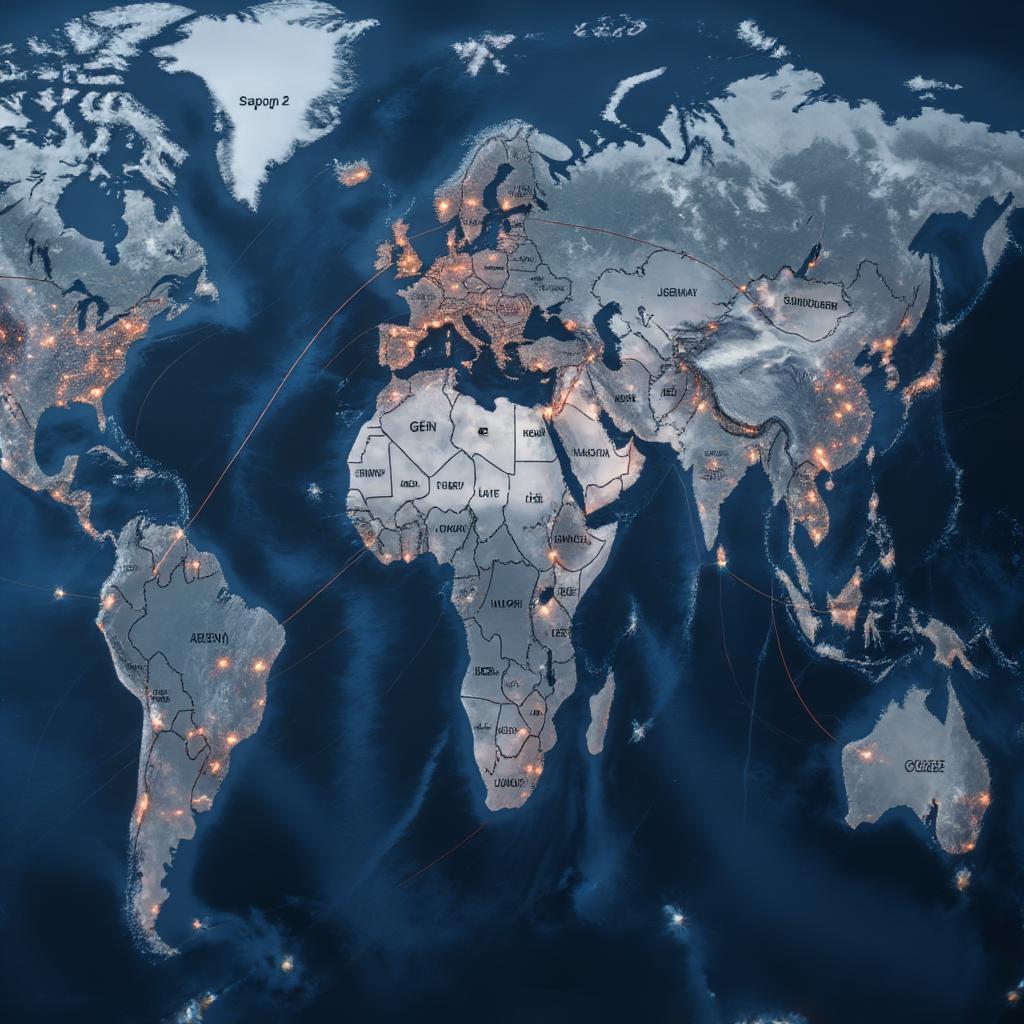Canon, a global leader in imaging and optical products, operates in a complex and dynamic environment. Understanding how political and economic factors influence Canon’s strategic decisions is crucial for investors, competitors, and industry analysts. This PESTEL analysis delves into the specific political and economic challenges and opportunities Canon faces, providing insights into its resilience and adaptability in a constantly evolving global landscape. How Canon navigates political and economic challenges is a testament to its strategic foresight and operational agility.
Table Content:
- Political Landscape and Canon’s Strategies
- Navigating Trade Wars and Protectionism
- Economic Factors Influencing Canon’s Performance
- Adapting to Economic Slowdowns and Recessions
- Currency Fluctuations and Their Impact on Canon
- The Interplay of Political and Economic Factors
- Frequently Asked Questions (FAQ)
- Conclusion
Political Landscape and Canon’s Strategies
Political stability and government regulations play a significant role in Canon’s operations across different countries. Trade policies, tariffs, and intellectual property protection are key areas that can impact the company’s profitability and growth. How does Canon address these political factors?
Canon actively engages with government bodies and industry associations to advocate for policies that support free and fair trade. The company also invests heavily in protecting its intellectual property rights, mitigating the risk of counterfeiting and patent infringements. Furthermore, Canon diversifies its manufacturing and supply chain across multiple regions, reducing its dependence on any single political entity. This strategic approach minimizes the potential disruption caused by political instability or unfavorable policy changes in any specific country.
Navigating Trade Wars and Protectionism
The rise of protectionist sentiments and trade wars presents a significant challenge for multinational corporations like Canon. How does the company manage these complex political dynamics?
Canon leverages its global presence to optimize its manufacturing and distribution networks. By strategically locating its facilities in different countries, Canon can adapt to changing trade policies and minimize the impact of tariffs. This flexible approach allows Canon to maintain a competitive edge even during periods of heightened trade tensions.
Economic Factors Influencing Canon’s Performance
The global economic climate significantly impacts consumer spending and business investments, directly affecting Canon’s sales and profitability. Economic growth, inflation, currency fluctuations, and interest rates are crucial factors that Canon continuously monitors and analyzes. So, how does Canon adjust its strategies based on these economic variables?
Canon employs a multi-pronged approach to mitigate economic risks. The company closely monitors economic indicators and adjusts its pricing and product development strategies accordingly. For instance, during economic downturns, Canon may focus on developing more affordable products to cater to price-sensitive consumers. Conversely, during periods of economic growth, Canon might invest more in innovative, high-end products to capture a larger share of the premium market.
Adapting to Economic Slowdowns and Recessions
Economic recessions pose unique challenges for companies like Canon, often leading to decreased consumer spending and business investments. How does Canon weather these economic storms?
Canon focuses on operational efficiency and cost optimization during economic downturns. The company streamlines its manufacturing processes, reduces operating expenses, and invests in research and development to enhance its product competitiveness. This strategic focus allows Canon to maintain profitability and market share even during periods of economic hardship.
Currency Fluctuations and Their Impact on Canon
Fluctuations in currency exchange rates can significantly impact Canon’s profitability, especially considering its global operations. How does the company manage these financial risks?
Canon employs hedging strategies and financial instruments to mitigate the impact of currency fluctuations. The company carefully manages its foreign exchange exposure, ensuring that fluctuations in currency rates don’t significantly erode its profit margins. This proactive approach helps Canon maintain financial stability and predictability in the face of volatile currency markets.
The Interplay of Political and Economic Factors
Political and economic factors are often intertwined, creating a complex web of challenges and opportunities for Canon. How does Canon navigate this interconnected landscape?
Canon adopts a holistic approach, considering both political and economic factors when making strategic decisions. The company recognizes that political instability can lead to economic uncertainty, and vice versa. Therefore, Canon develops contingency plans to address various scenarios, ensuring its resilience and adaptability in a constantly evolving global environment.
Frequently Asked Questions (FAQ)
Q: How does Canon manage political risks in emerging markets?
A: Canon conducts thorough political risk assessments before entering new markets and works closely with local partners to understand the political landscape.
Q: What is Canon’s strategy for dealing with economic volatility?
A: Canon diversifies its product portfolio, optimizes its supply chain, and adjusts its pricing strategies to adapt to changing economic conditions.
Q: How does Canon contribute to the economies of the countries it operates in?
A: Canon creates jobs, invests in local communities, and pays taxes, contributing to economic growth in the countries where it operates.
Q: How does Canon ensure ethical business practices in politically sensitive regions?
A: Canon adheres to a strict code of ethics and conducts regular audits to ensure compliance with local laws and international standards.
Q: What is Canon’s approach to lobbying and government relations?
A: Canon engages with government officials and policymakers transparently and ethically, advocating for policies that benefit the industry and the communities it serves.
Q: How does Canon manage its environmental footprint in different countries?
A: Canon is committed to sustainability and implements environmentally friendly practices across its operations, complying with local environmental regulations.
Q: How does Canon adapt its marketing strategies to different political and economic contexts?
A: Canon tailors its marketing messages and campaigns to resonate with local audiences, considering cultural sensitivities and economic realities.
Conclusion
Canon’s ability to navigate political and economic challenges is a testament to its strategic foresight, operational agility, and commitment to innovation. By continuously monitoring the global landscape, adapting its strategies, and engaging with stakeholders, Canon maintains its position as a leader in the imaging and optical industry. Understanding how Canon addresses these challenges provides valuable lessons for other businesses operating in a globalized world, emphasizing the importance of adaptability and resilience in a constantly evolving environment.



